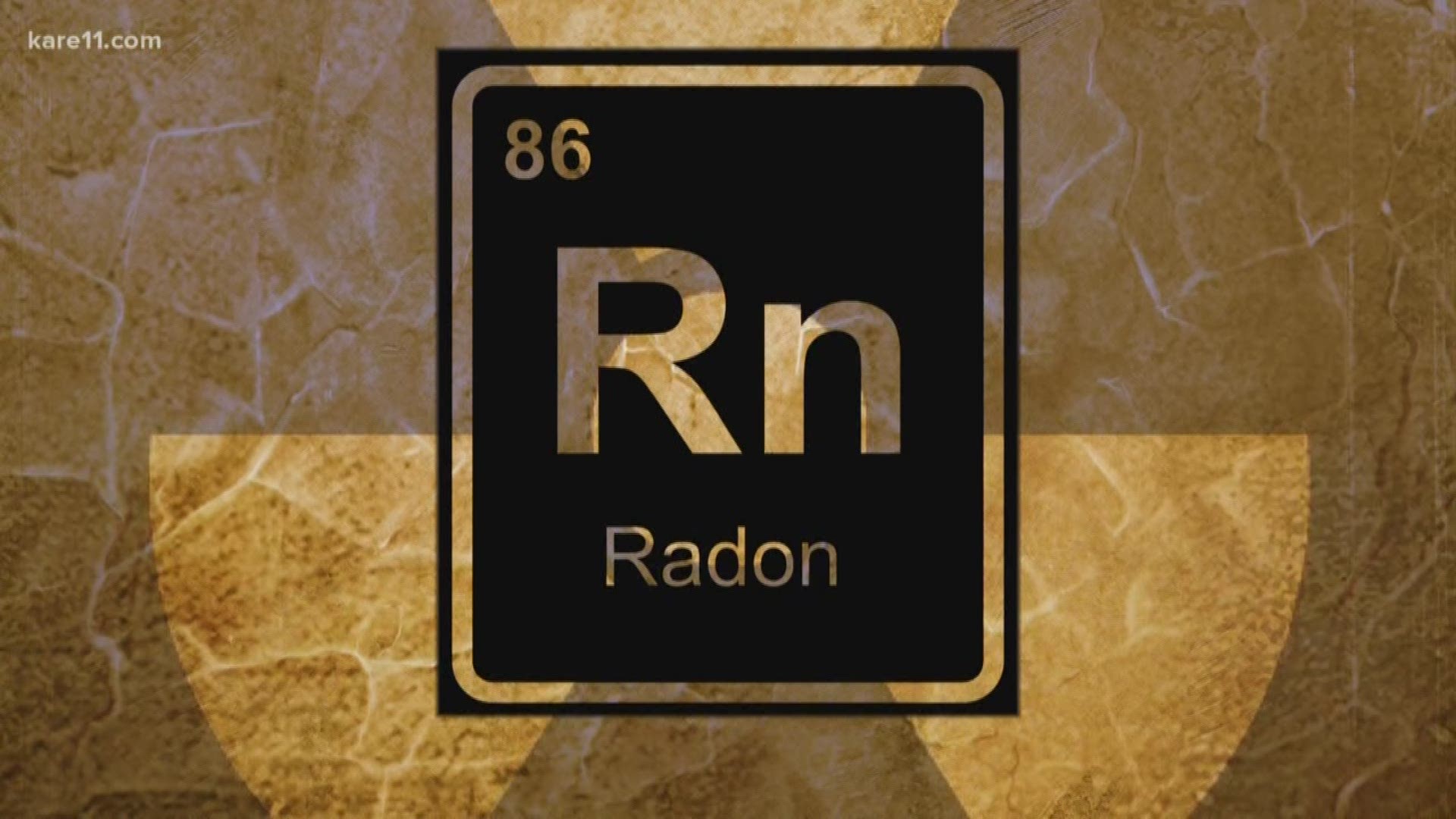ST PAUL, Minn. — Even though it had been approved by the Minnesota House and was supported by Governor Walz, a plan to require radon testing in Minnesota schools has hit a roadblock in the state Senate.
“Last year KARE 11 did a story on radon testing and found that only 33 school districts tested for radon,” said Senator Karla Bigham (DFL – Cottage Grove) as she introduced an amendment on the floor of the Senate to mandate school districts test for radon.
The KARE 11 investigation she was referring to discovered more than 80 percent of Minnesota school districts failed to test classrooms for radon since 2012, despite recommendations by both state and federal health officials for testing to be conducted at least once every five years.
There’s a life and death reason behind those guidelines, as Dan Tranter with the Minnesota Department of Health explained.
“Radon causes lung cancer,” Tranter said. “It’s estimated by the U.S. Environmental Protection Agency to cause over 21,000 lung cancer deaths per year in the United States alone.”
Radon is an odorless, colorless gas, and in Minnesota, 80 percent of counties are listed as radon hot zones.
KARE 11’s investigation found wide disparities as to whether, when and how the 20 largest school districts in the Twin Cities metro area are testing their buildings for radon. The investigation also revealed that schools in the counties with highest known concentrations of radon are not regularly tested, if at all.
In the wake of those findings, Minnesota House lawmakers, in a bipartisan vote, moved to establish more rigorous and regular radon testing requirements for all of Minnesota's public schools. The plan is funded as part of school districts’ existing 10-year facilities maintenance plans, which already include covering health, safety and environmental management costs.
Governor Tim Walz supported the measure.
Senator Bigham tried introducing a similar measure in the Senate this week.
“Members, there are schools right now that are not being tested that are putting our students in jeopardy,” she said.
But some GOP senators voiced concern about the cost of requiring school districts to test for the known carcinogen.
“I question if we do find it, how are we going to fund that?” Senator Jeff Howe (R-Rockville) asked. “I think we’re getting a little ahead of ourselves to go out there and start testing for radon in our schools before we actually do an analysis of how big of a problem we have,” he added.
Instead of requiring schools test for radon, Senator Karin Housley (R - St. Marys Point) moved to create a study group.
“I think we need to do a more in-depth study of how we can do these radon tests and mitigations across the whole state because it does end up costing a lot of money for these school districts,” she stated.
Senator Mary Kiffmeyer (R – Big Lake) agreed. “Why should we have all of these school districts spending time and money going forward on this when the commissioner of education has the expertise to convene a study group,” she said during the floor debate.
The science of whether and when schools should be tested was settled years ago, University of Minnesota professor William Angell, a nationally acclaimed expert on radon testing, told KARE 11.
“It’s been a recommendation that’s been around for 25 years,” said the professor, who also exclaimed, “It’s irresponsible not to test for radon in schools!”
Current data, according to MDH, shows 12 percent of school buildings that have been tested have had one or more rooms with radon levels above the EPA action level.
“As far as cost is concerned, school districts as government entities are eligible to purchase test kits for $4.56 each,” said Dan Tranter, who oversees the state Health Department’s indoor air quality unit at a previous hearing in the House.
If radon is found, Tranter told lawmakers it can often be easily fixed. “Many schools can fix radon by adjusting the existing HVAC,” he testified.
Senator Bigham spoke passionately against delaying the testing requirement in favor of a delay to form a study group. “If you want a study group,” she said, “to do what we already know has to be done and test for this carcinogen that our students may be being exposed to right now then go ahead and vote yes on the study group.”
The Senate voted 35 to 31 in favor of forming a study group. Senator Bigham then pulled her amendment from the floor, which killed both measures.
Radon testing reform could be revived next week when the House and Senate meet in conference committees to find common ground on differing versions of their bills.

